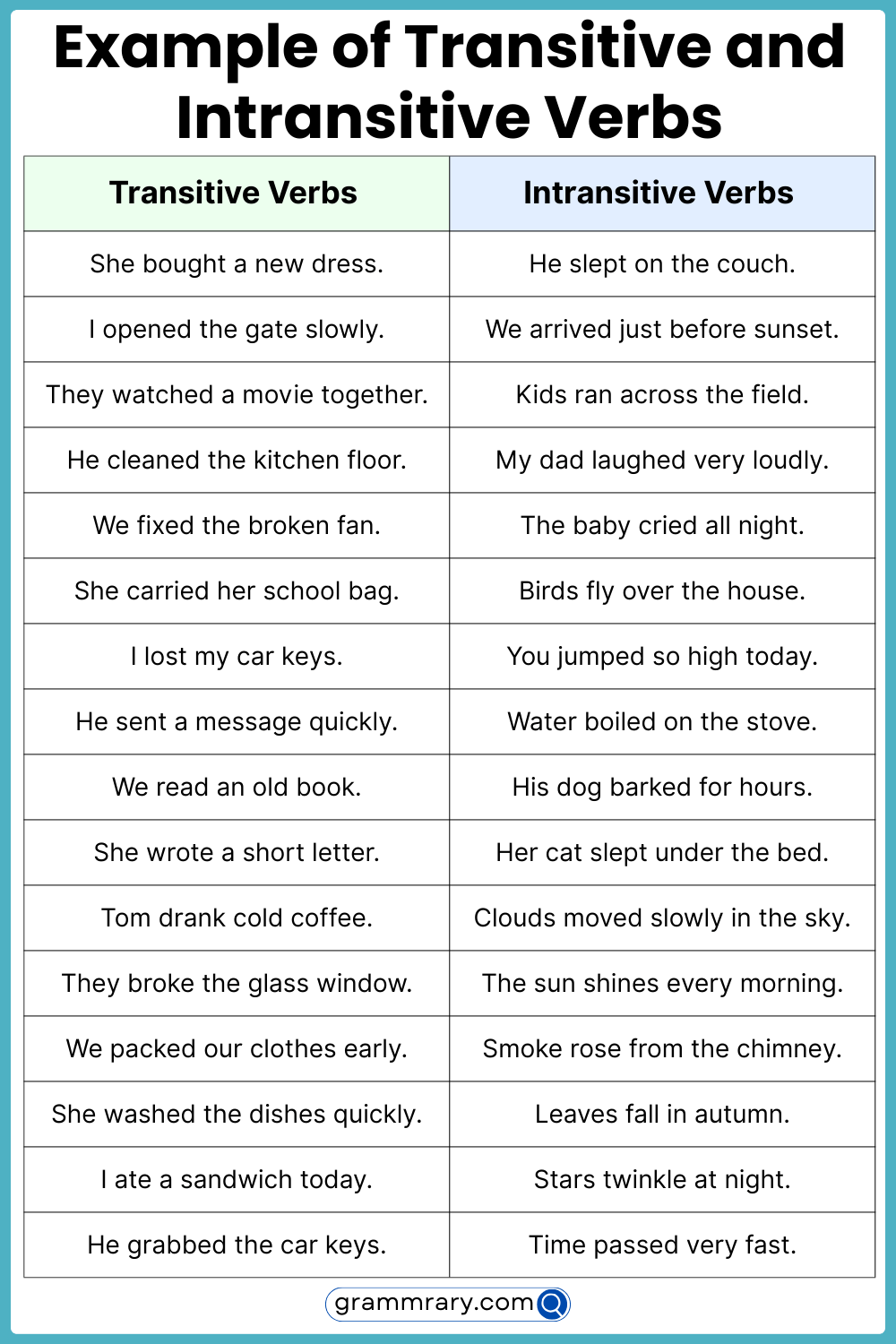Verbs play a crucial role in the structure of a sentence. Understanding the difference between transitive and intransitive verbs is important for constructing clear and concise sentences. Both types of verbs have distinct characteristics that affect the way they function in a sentence.
Transitive verbs require a direct object to complete their meaning, while intransitive verbs do not. This distinction is essential in determining the grammar and syntax of a sentence.
Transitive Verb vs Intransitive Examples
Transitive verbs are action verbs that require a direct object to complete their meaning. For example, in the sentence “She ate an apple,” the verb “ate” is transitive because it requires the direct object “an apple” to make sense. Without the direct object, the sentence would be incomplete.
In contrast, intransitive verbs do not require a direct object to complete their meaning. For example, in the sentence “He sleeps peacefully,” the verb “sleeps” is intransitive because it does not require a direct object. The sentence is complete without any additional words.
Some verbs can function as both transitive and intransitive, depending on how they are used in a sentence. For example, the verb “run” can be transitive in the sentence “She runs a marathon,” where “a marathon” is the direct object, or intransitive in the sentence “He runs every morning,” where there is no direct object.
It is important to distinguish between transitive and intransitive verbs to ensure the clarity and correctness of a sentence. Using the appropriate verb form can help convey the intended meaning accurately and effectively.
Overall, understanding the difference between transitive and intransitive verbs is crucial for mastering the English language. By recognizing how these verbs function in a sentence, you can improve your writing and communication skills.
Closing Thoughts
Transitive and intransitive verbs play distinct roles in the structure of a sentence. By recognizing the differences between them and practicing their usage, you can enhance your linguistic abilities and create more compelling and coherent sentences.
